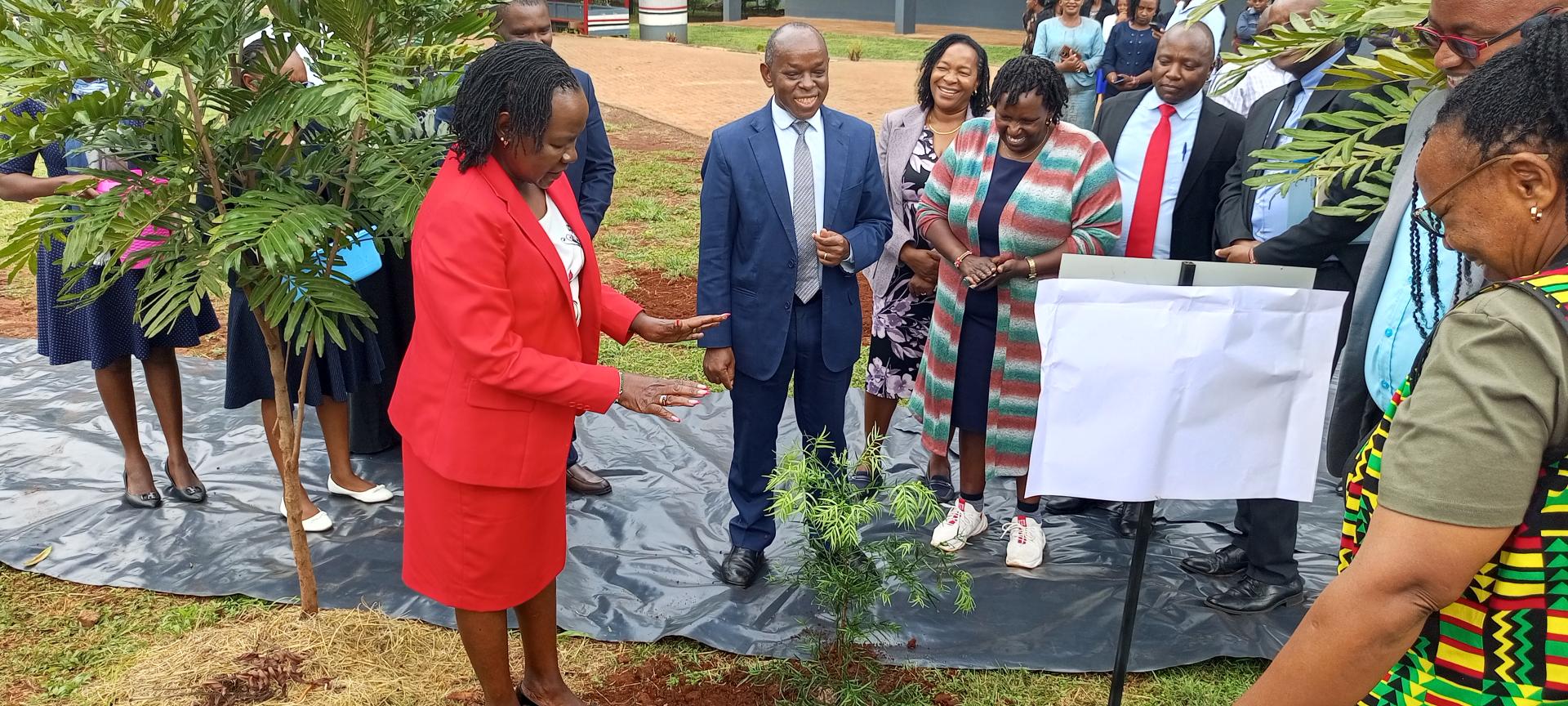
Technical and Vocational Education and Training institutes across the country have launched an initiative to plant 3.5 million trees during this rainy season.
Already, 2.5 million trees have been planted, with the TVETs aiming to exceed their annual target of five million.
Speaking at the launch of a ten-day greening initiative at Kiambu National Polytechnic, TVETs Principal Secretary Esther Muoria said the institutions have over 700,000 enrolled learners.
“Each of the students is expected to plant five seedlings and ensure they tend to them until they leave the institution,” the PS said, adding that this will ensure the trees reach maturity.
The initiative will boost the Kenya Kwanza government’s plan to plant 15 billion trees by 2032.
She commended Kinap for establishing the largest nursery among the institutions, saying the polytechnic has the capacity to supply trees to other institutions and generate income.
"We are encouraging income-generating activities in our institutions. Seedling propagation is one of the ideas that Kiambu National Polytechnic has embraced and implemented very well. It is our responsibility to keep our environment as healthy as possible.”
Additionally, the implementation of Competency Based Education and Training (CBET) in TVETs has led the government to shift to a modular curriculum, which is set to begin this month.
Under this system, the TVET department has divided the curriculum into skill sets on which learners will be trained and certified.
“Every three months, a student will be properly trained and skilled and be able to proceed to work or continue with further learning,” she said.
“If a student enrols for a course in building and civil engineering, we’ll train them in setting up a building in all the areas up to slabbing, bricklaying, plastering and any other skill required in that sequence over three months to ensure they are well-skilled and can either go to work or return to do module 2."
She invited manufacturing industries to support TVETs by offering work experience opportunities to students within their businesses.
The curriculum was developed with industries in mind, as they are the primary providers of employment for most TVET learners.
She added that her department has a Skills Advisory Committee that establishes the occupational standards which inform the curriculum.
They are currently developing a national TVET timetable for the courses offered.
“The timetable will enable learners to know from day one what they are starting with and what follows, to avoid confusion. We want it to be clear that when they enrol, this is their starting point," she said, emphasising that TVET training should be skills-based with minimal theoretical instruction.
The last cohort of students to be examined under the Kenya National Examinations Council will graduate in July next year, after which either the Curriculum Development, Assessment and Certification Council (CDACC) or National Polytechnics will conduct the examinations, the PS said.
Kinap Principal Sammy Waititu said the institution has planted over 50,000 tree seedlings in partnership with the Kenya Forest Service and Kefri.
KFS has allocated the institution 10 hectares of land within Kinale forest for tree planting, he said, where another 50,000 seedlings will be planted on 9 May.
The Kenya Forestry Research Institute on the other hand, provides the seeds and trains learners on their propagation.














![[PHOTOS] Ole Ntutu’s son weds in stylish red-themed wedding](/_next/image?url=https%3A%2F%2Fcdn.radioafrica.digital%2Fimage%2F2025%2F11%2Ff0a5154e-67fd-4594-9d5d-6196bf96ed79.jpeg&w=3840&q=100)

